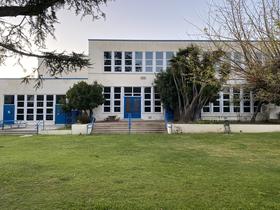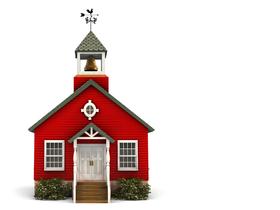Are you thinking about something other than the usual public school experience for your toddler or primary school age child? If you are, then the next question you are most likely asking is exactly what kind of alternatives are out there anyway? How expensive are they? Are there schools in my area? How will the foundation these schools provide serve my child's future learning in grade school, high school and beyond? Let's take a look at each of these questions and offer some answers.
Early Education Options
Traditional teacher-led education? A follow the child approach as championed by Maria Montessori? The Steiner approach? Reggio Emilia inspired? Those are your broad choices.
Traditional teacher-led education remains popular. Most of us are familiar with this approach to teaching primary age school children because we ourselves are products of those classes. The public school system which I attended in Westmount, Montreal back in the '50s used that traditional approach. Indeed we all had desks lined up in rows. Looking back it seems rather quaint and not a little bit militaristic. But that's the way we were taught back then. We had homework. We were given grades. We are rapped on the knuckles if we misbehaved.
In the 21st century traditional teacher-led education is the norm in many schools both public and private. There are an infinite number of variations on this approach. Some retain the regimentation and strictness which we and our parents remember. Most, however, tend to have been softened with a deeper understanding of how children learn.
From Greensboro Country Day School's site:
" *children learn through active engagement in their environment with the support and encouragement of dedicated and motivated teachers.
*every child’s learning style is unique and as educators, it is our responsibility to know each child’s strengths and challenges in order to help them learn."
This approach is fairly typical of most private schools these days.
Montessori
Maria Montessori started the movement which bears her name by taking on the education of Rome's poorest, most disadvantaged children. Her original Casa de Bambini or Children's House was opened at the behest of the local authorities. As Dr. Montessori observed the children under her care, she developed the theories and philosophies which are the essence of Montessori to this day. Let's see what a Montessori classroom is like.
While Montessori had its roots in the slums of Rome, it is hugely popular in middle class communities throughout the world. Dr. Montessori never trademarked her name or the method which bears her name. As a result Montessori schools come in a wide variety of styles and approaches depending on the philosophic track which their directors have adopted.
As with all private schools, each Montessori school is unique. Montessori schools are not a franchise or chain type of operation. When you see Montessori in a school's name or in its literature, it means that that specific school has decided to adapt Montessori methods and ideas as its way of doing things. The extent to which it faithfully adheres to the Montessori principles and tenets is determined by the individual school. You will need to check very carefully to ensure that the school you are interested in actually adheres to Dr. Montessori's teachings and methods. Verify which Montessori associations the school belongs to. Find out whether the teachers are Montessori trained and certified. You will have over 6,000 schools from which to choose.
Reggio Emilia
You won't find a Reggio Emilia school per se. What you will find are Reggio Emilia inspired schools. These are schools which have made a point of adopting the ideas and philosophy which the Reggio Emilia movement has codified. Things like naturally lit classrooms and a collaborative approach to education with plenty of parental involvement are what appeal to many parents. “The child has a hundred languages." The following video shows how Reggio Emila works.
On the negative side of the ledger is the reality that there are only about 50 Reggio Emilia inspired schools in the United States.
Waldorf
Waldorf education is the brainchild of the German philosopher Rudolf Steiner. Features such as your child having the same teacher for several grades during each stage of her schooling, the emphasis on developing the imagination and eurythmics make a Waldorf education very special. Waldorf schools are computer-free. The U.S. has over 200 Waldorf schools covering almost every part of the country.
Read the PBS article Comparing Preschool Philosophies: Montessori, Waldorf and More for further insights into Montessori, Reggio Emilia and Waldorf education.
Progressive
Progressive schools trace their origins to the early part of the 20th century when education reformers such as John Dewey. Progressive schools do not use traditional testing, marking and grades as part of their assessment. The emphasis is on allowing the child to thoroughly explore subjects, ideas and things which catch his interest. That concept may alarm some parents who worry about their children taking 5 Advanced Placement exams and getting into Harvard. But the truth is that colleges and universities these days look at much more than SAT and AP scores during the admissions process.
Carden
Mae Carden unlike Maria Montessori was astute enough to trademark her name and method. As a result Carden schools follow her methods and ideas to the letter. She believed in educating the whole child. Carden students begin public speaking as early as kindergarten. Classes are multi-age and group children according to skill levels. The approximately 80 Carden schools are usually proprietary and are very popular in the western states.
This short video gives you an idea of the Carden approach to reading comprehension.
"Mae Carden established the first CARDEN SCHOOL® in 1934 at 24 East 68th Street in New York City. She demonstrated that children can gain an understanding of their own language and attain the ability to use it correctly when reading, listening, speaking, or writing. Her goal was to teach children to think; her main techniques were analysis and rhythm. Her educational philosophy and teaching techniques became an integral part of the CARDEN METHOD®. Teachers, students, and parents often shorten the name of this interrelated, eclectic group of approaches to learning. They call it Carden."
The cost?
Alternative schools cost about the same as any other kind of private school with the exception, of course, of the much more expensive special needs and therapeutic schools. Tuition varies widely depending on the programs offered at individual schools.
The long term results?
Sending your child to a non-traditional school will generally have only positive effects on her future academic progress. These schools encourage exploration and learning in their special ways using the strategies, techniques and philosophies of their founders. They tend to be very successful at what they do. Parents and students alike speak enthusiastically about their experiences. This video answers compares academic achievement in Montessori versus traditional schools.
As one parent to another, I urge you to consider all the options and choices which you have for your child's education. Find the one which works the best for you and your requirements.















